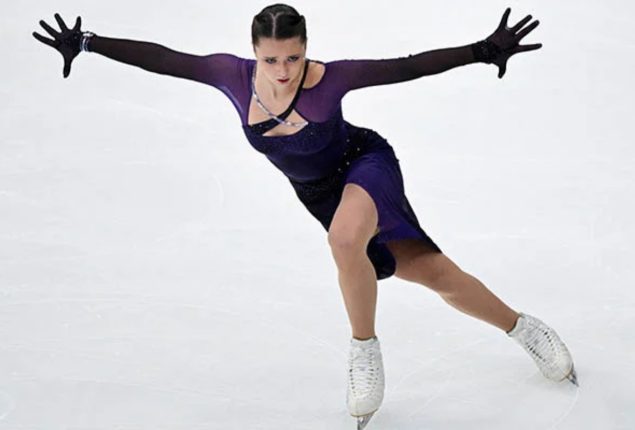Australian Cricket Legend Draws Parallels Between IPL and Olympics
Langer, Lucknow Super Giants' coach, likens IPL to Olympics. Talks IPL with...

Kamila Valieva
The Court of Arbitration for Sport (CAS) on Monday banned Kamila Valieva, a teenage Russian figure skater, for four years after she failed a drug test before the 2022 Winter Olympics.
The three-member panel in the highest court of sports concluded that Valieva had “committed an Anti-Doping Rule Violation (ADRV) under Clause 4.1 of the All-Russian Anti-Doping Rules of 24 June 2021.”
“A period of four years ineligibility is imposed on Ms Valieva, starting on 25 December 2021.
“All competitive results of Ms Valieva from 25 December 2021 are disqualified, with all the resulting consequences (including forfeiture of any titles, awards, medals, profits, prizes, and appearance money),” CAS added.
While applauding the ban, the World Anti-Doping Agency (WADA) criticized those who had doped Valieva, who was only 15 at the time.
A statement released by WADA declared, “The doping of children is unforgivable,” and it demanded that physicians, coaches, and other support staff who are discovered to have given performance-enhancing drugs to kids face consequences under its code of conduct.
“WADA encourages governments to consider passing legislation — as some have done already — making the doping of minors a criminal offense,” it stated.
The Kremlin, however, denounced what it referred to as a “politicised” choice.
“Of course, we don’t agree with it… From my point of view, of course, it’s politicised,” Kremlin spokesman Dmitry Peskov told Russian news agencies.
The positive test of Valieva prompted not only doubts about her innocence but also concerns about how she was handled as a minor, the method of the test and the effectiveness of the drug in improving performance.
The matter reached CAS after Valieva was cleared by Russia’s anti-doping agency (RUSADA). WADA and the International Skating Union (ISU) challenged RUSADA’s decision, and so did RUSADA itself.
In September, three CAS judges convened in Lausanne to examine the case with Valieva and some of the experts and witnesses joining via videoconference.
Valieva made history in Beijing in February 2022, when she became the first female skater to execute a quadruple jump in an Olympic event, contributing to Russia’s gold medal in the team competition.
The following day, she was informed that she had tested positive for trimetazidine, a drug that is used for angina but prohibited for athletes, before the Games.
According to CAS’s verdict, the team event’s medal standings should now change, with the United States getting gold, Japan silver and Canada bronze.
Catch all the Sports News, Breaking News Event and Latest News Updates on The BOL News
Download The BOL News App to get the Daily News Update & Follow us on Google News.